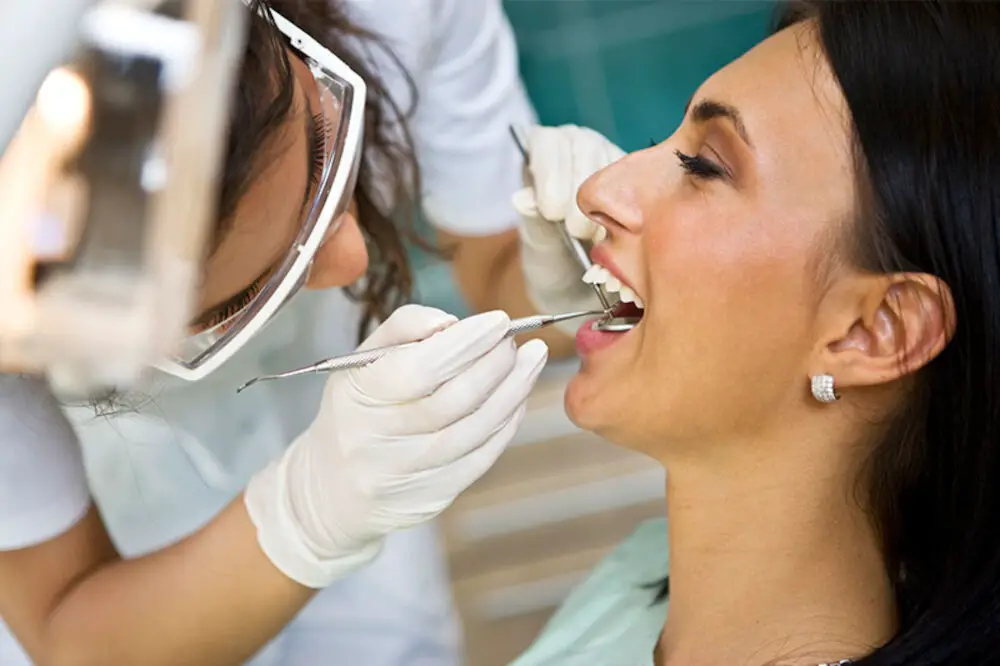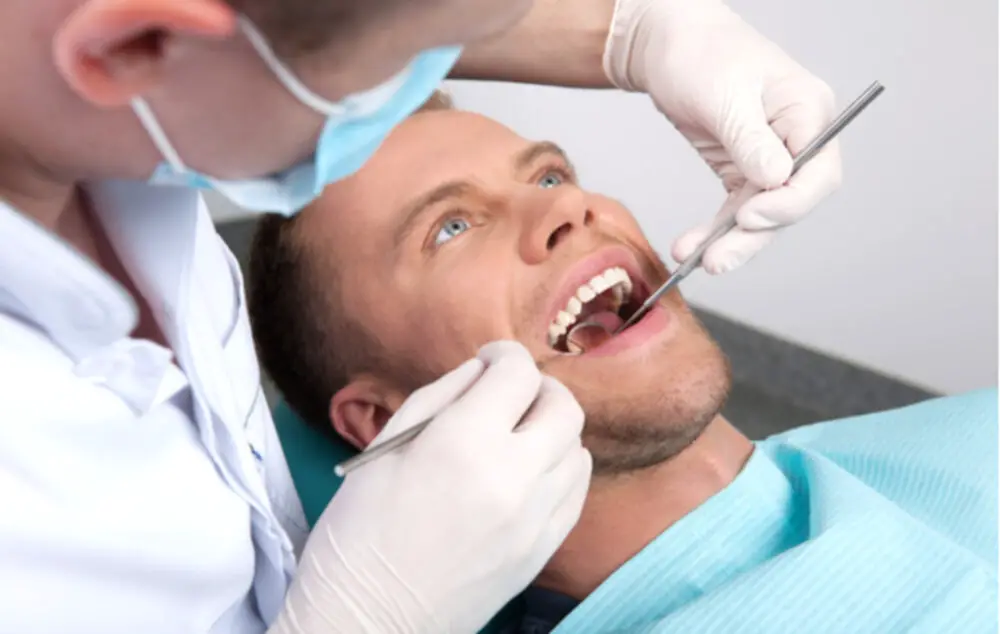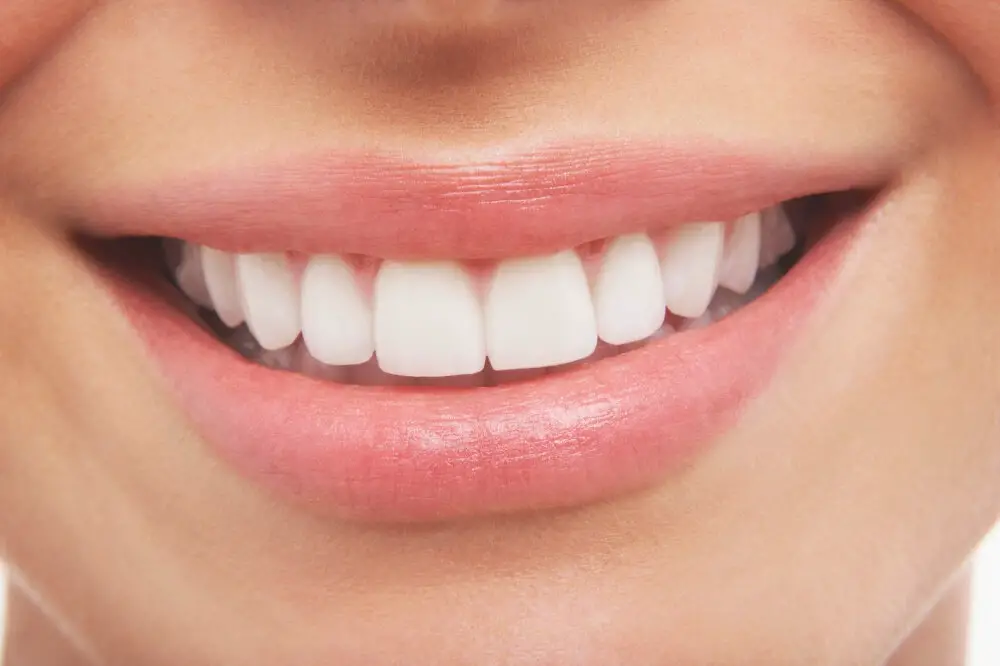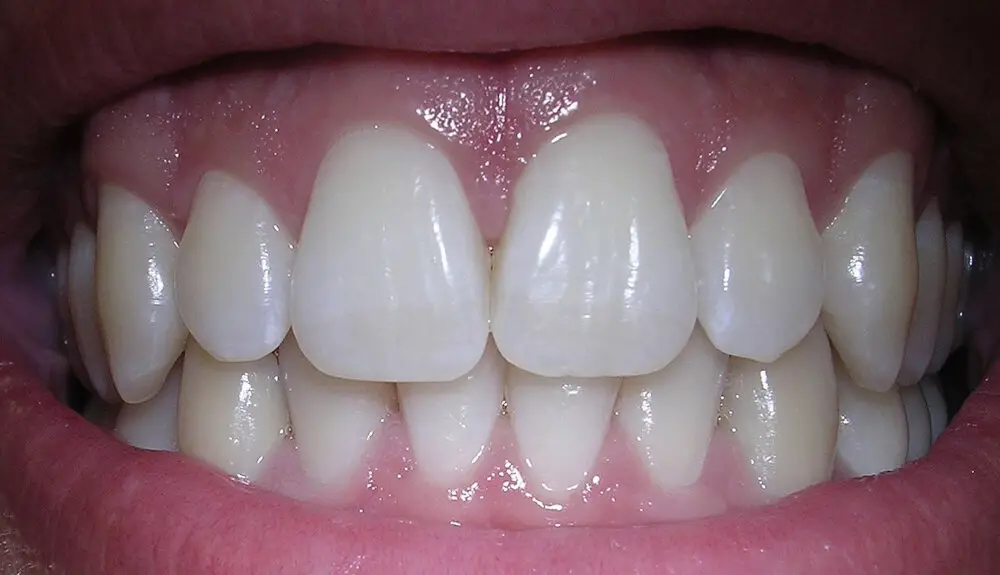Healing Time Unveiled: How Long Do Wisdom Teeth Stitches Take to Heal?

When it comes to wisdom teeth extraction, most people are concerned about the pain and recovery time. One of the most common questions people ask is how long it takes for the wisdom teeth stitches to heal. The healing time for wisdom teeth stitches can vary depending on several factors, such as the individual’s overall health, the number of teeth extracted, and the type of stitches used. Understanding the healing process and what to expect during this time can help ease any anxiety or concerns about the recovery period. Wisdom teeth extraction is a common dental procedure that involves the removal of one or more wisdom teeth. The procedure requires a small incision in the gum tissue, and sometimes stitches are needed to close the wound and promote healing. The healing process for wisdom teeth stitches typically takes about two weeks, but this can vary depending on the individual’s health and the extent of the extraction. During this time, it’s essential to follow your dentist’s aftercare instructions carefully to ensure proper healing and avoid any complications.
Wisdom teeth are the last set of molars that grow at the back of the mouth, usually between the ages of 17 and 25. While some people may not experience any issues with their wisdom teeth, others may need to have them removed due to various reasons. The most common reasons for wisdom teeth removal include overcrowding, where the mouth doesn’t have enough space to accommodate the new teeth, leading to misalignment and discomfort. Impacted wisdom teeth, where the teeth don’t fully emerge from the gums, may cause pain, infection, and damage to the surrounding teeth. Additionally, wisdom teeth may be removed if they are causing gum disease, decay, or cysts. Removing wisdom teeth is often necessary to prevent further complications and maintain good oral health.
Stitches are a common practice in the removal of wisdom teeth, as they help close the wound and promote healing. The use of stitches varies depending on the patient’s case, the type of procedure, and the dentist’s preference. Dissolvable and non-dissolvable stitches are the two main types of stitches used in wisdom teeth extraction. Dissolvable stitches dissolve on their own over time, while non-dissolvable stitches require a follow-up appointment for removal. The healing time for stitches after wisdom teeth removal varies from person to person, and it depends on factors such as the individual’s overall health, the type of stitches used, and how well the patient follows aftercare instructions.
Factors That Affect Healing Time

The healing process after the removal of wisdom teeth is influenced by several factors that can determine the length of time required for complete healing. One of the most significant factors is the age of the patient. Younger patients typically have a faster healing process than older patients because their bodies are more resilient and can regenerate tissue more quickly. Patients who smoke or use tobacco products also experience a slower healing process because smoking can constrict blood vessels, reducing the amount of oxygen and nutrients that reach the surgical site. Additionally, patients who have pre-existing medical conditions such as diabetes or autoimmune disorders may also experience a longer healing time due to their compromised immune systems. Another critical factor in the healing process is the aftercare provided to the patient. Proper post-operative care, such as following the instructions provided by the dentist or oral surgeon, can significantly impact the healing process. Patients who fail to follow post-operative instructions, such as avoiding certain foods or not taking prescribed medications, can experience complications and prolong the healing process. Good oral hygiene practices, such as gently rinsing the mouth with salt water and keeping the surgical site clean, can also aid in the healing process. Overall, a combination of factors, including age, lifestyle choices, and post-operative care, can determine the length of time required for complete healing after wisdom teeth removal.
The location and complexity of the extraction play a significant role in determining the healing time required for wisdom teeth stitches. The location of the extraction site influences the amount of pressure exerted on the wound and the extent of tissue damage, which ultimately affects the healing process. Wisdom teeth located in challenging positions such as horizontally impacted and partially erupted teeth, require more invasive procedures, and take longer to heal. The complexity of the extraction also determines the level of trauma inflicted on the surrounding tissues, which in turn affects the healing process. A more complex extraction procedure may require a larger incision and more stitches, which may increase the healing time. It’s important to follow the post-operative instructions provided by your dentist to facilitate the healing process and reduce the risk of complications.
Smoking is one of the factors that can significantly slow down the healing process after wisdom teeth surgery. Nicotine and other harmful chemicals in cigarettes constrict the blood vessels, reducing the amount of oxygen and nutrients that reach the surgical site. This impairs the body’s ability to repair damaged tissues and fight off infections, ultimately leading to delayed healing times. Moreover, smoking weakens the immune system, making the body more vulnerable to infections, gum disease, and other oral health issues that can further complicate the healing process. Therefore, it is highly recommended to quit smoking for at least a few days before and after wisdom teeth surgery to promote faster and more successful recovery.
Typical Healing Timeframes

The typical healing timeframes for wisdom teeth stitches vary depending on the individual and the complexity of the procedure. However, it usually takes around 1-2 weeks for the stitches to heal completely. During this time, patients may experience some discomfort, swelling, and bleeding. It is important to follow the aftercare instructions provided by the dentist to ensure a smooth healing process. This may include avoiding hard foods, rinsing with salt water, and taking pain medication as prescribed. Factors that can affect the healing timeframes include age, overall health, and any underlying medical conditions. Older patients may take longer to heal due to a slower immune response, while those with chronic illnesses may have a weakened immune system that can prolong the healing process. In addition, smoking and poor oral hygiene can also delay healing and increase the risk of complications. Patients should closely monitor their symptoms and contact their dentist if they experience any unusual pain or swelling during the healing process.
The healing time for stitches largely depends on various factors such as the type of wound, the location of the stitches, and the individual’s overall health. However, on average, it takes about 7-10 days for wisdom teeth stitches to heal. During this period, patients are advised to adopt proper oral hygiene practices such as brushing gently, rinsing with salt water, avoiding hard foods, and refraining from smoking. Additionally, it is important to adhere to the post-operative instructions given by the dentist or oral surgeon to ensure a smooth and quick healing process. While discomfort and swelling can persist for a few days, patients can expect to resume their normal activities within a week after the procedure.
The healing time for dissolvable stitches versus non-dissolvable stitches can vary significantly depending on the type of surgery, the location of the incision, and the patient’s overall health. Dissolvable stitches, also known as absorbable sutures, are made of materials that naturally break down and are absorbed by the body over time. These stitches typically take longer to dissolve and can remain in place for several weeks, providing support to the wound as it heals. On the other hand, non-dissolvable stitches, also known as non-absorbable sutures, are often made from synthetic materials or natural fibers and must be removed by a healthcare provider after a certain period of time. These stitches may provide more stability to the wound during the initial healing phase but can cause discomfort when removed. Ultimately, the choice of suture material depends on the specific needs of the patient and the type of surgery being performed.
Tips for Promoting Healing

Healing is a natural process that our body undergoes after an injury or medical procedure. In the case of wisdom teeth removal, promoting healing is crucial to avoid complications and achieve a speedy recovery. There are several tips that you can follow to promote healing after wisdom teeth extraction. Firstly, maintaining good oral hygiene is essential to prevent infections and promote healing. You should brush your teeth gently and avoid touching the surgical site with your toothbrush. Additionally, you can rinse your mouth with saltwater to reduce swelling and promote healing. It is also recommended to avoid smoking and drinking alcohol as they may delay the healing process. Secondly, following a healthy diet can also aid in the healing process. You should avoid hard, chewy, or spicy foods that may irritate the surgical site. Instead, opt for soft and nutritious foods such as soups, smoothies, and mashed potatoes. Drinking plenty of water can also help flush out toxins and prevent dehydration, which may slow down the healing process. Lastly, getting enough rest is crucial for the body to heal. You should avoid strenuous activities and take enough rest to allow your body to heal. In conclusion, promoting healing after wisdom teeth extraction is essential to avoid complications and achieve a speedy recovery. Maintaining good oral hygiene, following a healthy diet, and getting enough rest can aid in the healing process. It is important to follow your dentist’s instructions and attend follow-up appointments to ensure that the healing process is progressing well.
After wisdom teeth extraction, there are several ways to promote healing and reduce pain experienced by patients. Firstly, patients should keep the extraction site clean by rinsing their mouth with saltwater regularly to prevent infection. Additionally, applying a cold compress to the affected area for the first 24 hours can reduce swelling and pain. Patients should also avoid smoking and drinking through a straw, as these activities can dislodge the blood clot and cause dry socket, which can prolong the healing process. Furthermore, sticking to a soft diet and avoiding hard or crunchy foods can also aid in healing. Finally, taking prescribed pain medication and following the post-operative instructions given by the dentist or oral surgeon can help ensure a speedy and successful recovery.
During the healing process after wisdom teeth extraction, it is important to eat soft and easy-to-chew foods to avoid disrupting the stitches and causing further pain or discomfort. Soups, broths, smoothies, mashed potatoes, and cooked vegetables are great options that are gentle on the mouth. On the other hand, it is best to avoid hard and crunchy foods such as chips, nuts, and popcorn, as well as spicy and acidic foods that can irritate the gums. Additionally, it is important to avoid using straws, as the sucking motion can dislodge the blood clot and delay the healing process. By following these suggestions, one can ensure a smoother and faster recovery after wisdom teeth extraction.
When to Call Your Dentist

When it comes to dental health, it is crucial to know when to call your dentist. If you experience severe pain or discomfort in your mouth, it is a sign that something is wrong, and you should seek professional help. Other reasons to call your dentist include bleeding gums, loose teeth, or a broken tooth. Ignoring these issues can lead to further complications and more extensive treatments down the line. It is always better to address dental problems early on to avoid more significant problems and costs. Regular dental check-ups can also help detect issues before they become more severe. If you have undergone a wisdom teeth extraction, you may experience some discomfort and pain during the recovery period. It is essential to know when to contact your dentist during this time. If you experience excessive bleeding, severe pain, or swelling that does not subside after a few days, it is time to call your dentist. Additionally, if you notice pus or an unpleasant odor around the extraction area, it may be a sign of an infection. It is crucial to seek professional help immediately to ensure proper healing and prevent further complications. Remember to follow your dentist’s instructions for post-operative care, including taking prescribed medications, applying ice packs, and avoiding certain foods.
After the extraction of wisdom teeth, a patient may experience some discomfort and minor bleeding. However, it is important to keep an eye out for warning signs that may indicate complications. These signs may include excessive bleeding, severe pain that is not relieved by medication, fever, swelling that worsens after a few days, difficulty swallowing or breathing, or numbness in the mouth or lips. If any of these symptoms occur, it is crucial to contact a dentist or oral surgeon immediately. Ignoring these warning signs may lead to serious complications and delay the healing process.
It is essential to know when to call your dentist or oral surgeon after wisdom teeth extraction. If you experience excessive bleeding that does not stop after applying pressure for over an hour, it is a dental emergency, and you should seek immediate medical attention. If you notice signs of infection, such as pus, fever, or severe pain, it is also crucial to contact your dentist or oral surgeon as soon as possible. Additionally, if you have any concerns or questions about your healing process, you should not hesitate to call your dental professional. Remember, regular checkups and follow-ups with your dentist or oral surgeon can help ensure a smooth and successful healing process after wisdom teeth extraction.
In conclusion, the healing time for wisdom teeth stitches can vary from person to person and depend on several factors such as age, overall health, and the extent of the procedure. On average, it can take up to two weeks for the stitches to fully dissolve and for the gum tissue to heal completely. It is essential to follow the aftercare instructions provided by the dentist or oral surgeon to ensure proper healing. Activities such as smoking, drinking through a straw, or eating hard or crunchy foods should be avoided during the healing process. Pain and discomfort can be managed with over-the-counter pain medication and cold compresses. If there are any concerns or complications during the healing process, it is important to contact your dental professional for advice.
Following postoperative instructions is crucial for optimal healing after wisdom teeth removal. These instructions are designed to ensure that the wound heals properly, and the risk of complications is minimized. Failure to follow the instructions can lead to complications, such as infection, dry socket, and delayed healing. Patients are advised to carefully follow instructions regarding oral hygiene, diet, and medication. They should avoid smoking, drinking through a straw, and strenuous physical activity for the prescribed time. Patients should also attend follow-up appointments with their dentist or oral surgeon to monitor the healing process. By following these guidelines, patients can ensure a smooth and successful recovery after wisdom teeth removal.
Conclusion

In conclusion, the healing time for wisdom teeth stitches varies from person to person and depends on various factors such as age, overall health, and the extent of the surgery. However, on average, it takes about 7 to 10 days for the stitches to dissolve and for the gum tissue to fully heal. During this time, it is important to follow the post-operative care instructions provided by the dentist to ensure a smooth and quick recovery. This includes avoiding hard or crunchy foods, maintaining good oral hygiene, taking prescribed medication, and attending follow-up appointments with the dentist. By taking these steps, patients can minimize discomfort and promote optimal healing of their wisdom teeth stitches.







